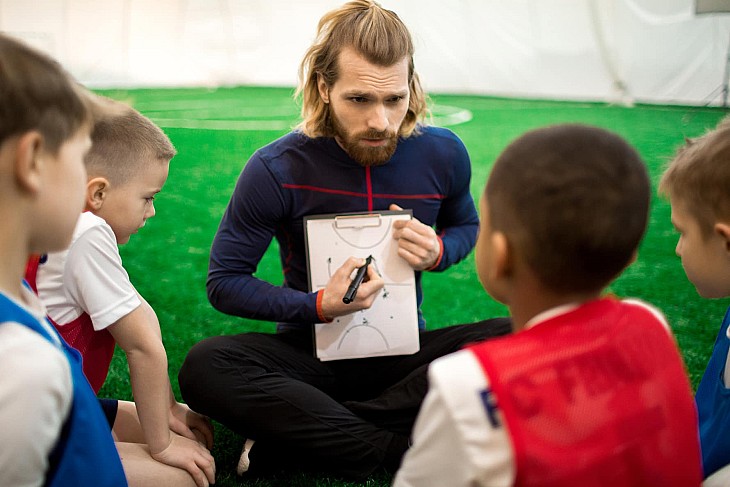Communication is Key – How a Coach Should Lead
No matter the level of play, a coach in team sports is never a lone fighter. The simple fact that a team must understand, implement, and execute a coach’s strategies on the field makes it clear that effective leadership is a collective effort.
Moreover, modern coaching is highly collaborative—a head coach works alongside assistant coaches, goalkeeping coaches, fitness trainers, and analysts, all specializing in different areas. Successful coaches today communicate, coordinate, and adapt to maximize a team’s potential.
Direct communication with players is equally important—it provides valuable feedback that helps refine strategies, strengthen team dynamics, and ultimately improve performance.
So, what key qualities define an effective coach? Below are six essential leadership skills every coach should master.
1. Teamwork 🏆
A coach must be a team player.
✔ Identifies individual strengths and weaknesses.
✔ Leads with accountability—taking responsibility for decisions and protecting the team in tough moments.
✔ Maintains open and transparent communication with players and staff.
2. Trust 🤝
✔ A great coach trusts their players and staff.
✔ Gives clear instructions but allows room for individual creativity and development.
✔ A team performs best when it feels the coach’s confidence.
3. Motivation 🔥
✔ A strong coach inspires their team—even in tough times.
✔ Sees each game as a fresh challenge and adapts accordingly.
✔ Knows how to maintain focus and energy, regardless of external pressures.
4. Authenticity 🎯
✔ A coach should be genuine and consistent in their approach.
✔ Has a clear plan and sticks to their principles.
✔ Acknowledges mistakes openly—honesty builds trust and long-term success.
5. Clarity 📢
✔ Clear expectations help players understand their roles.
✔ Defines precise tasks and responsibilities within the team.
✔ Ensures no player feels lost or out of place.
6. Courage ⚡
✔ Bold decisions drive progress.
✔ Coaches must be willing to try new tactics, take calculated risks, and step outside their comfort zone.
✔ A fearless approach leads to innovation and breakthroughs on the field.
Final Thoughts: Coaching Beyond the Tactics
Modern coaching goes beyond tactical expertise.
✔ Leadership and communication are just as critical as strategy.
✔ Coaches must be educators, motivators, and representatives of their team.
✔ Regular feedback and open dialogue strengthen team cohesion.
A great coach is like a CEO—they don’t do everything alone, but they guide, inspire, and empower their team to achieve success. 🚀

